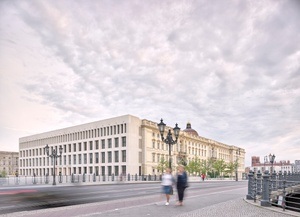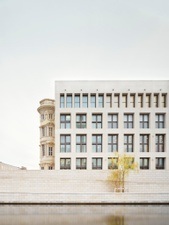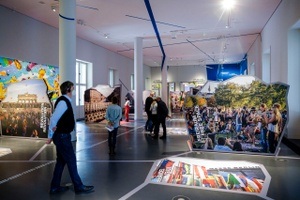Theirreversible climate crisis is increasingly leading industry to think about alternative ways of generating energy without having to sacrifice growth and profit maximization. One example of this "green capitalism" is the growing global demand for lithium, a raw material that is currently irreplaceable for the production of batteries for smartphones, tablets and, in particular, electric cars. In order to promote Germany's and the EU's independence from raw materials, particularly from China, as envisaged in the "Critical Raw Material Act", potential mining areas in Europe are increasingly being looked at. One of the largest European lithium deposits is in the Jadar Valley in western Serbia. According to estimates, 58,000 tons of lithium could be mined annually - with a mine life of 39 years. A broad socio-ecological movement has formed in Serbia against this major project since the plans were published in 2022, warning of the incalculable risks to the environment, water supply and the destruction of biodiversity. Criticism has also focused on Rio Tinto's antisocial practices in buying up land from local farmers and justified doubts about compliance with the rule of law and environmental protection. Following a temporary halt to the plans at the beginning of 2022 and despite considerable concerns, the EU and the Serbian government signed an agreement in Belgrade on July 19, which resumed the construction of the mine and is now intended to accelerate it. The participation of German Chancellor Olaf Scholz in the meeting in Belgrade underlines the German government's economic interest in the project, which will primarily benefit the German automotive industry.
Against this backdrop, the question immediately arises as to whose interests this project is being driven forward in the first place. Is it the economic development of Serbia, the industrialization of an agrarian region, or the securing of raw materials for the German and European automotive industry? Is it proportionate to accept the destruction of the natural environment, agricultural production and the water supply of entire regions for the production of environmentally friendly electric cars?
Guests:
Cindy Peter, active in the climate justice movement and colleague of Carola Rackete (MEP), Dresden
Manfred Santen, environmental expert and former employee of Greenpeace, Berlin
Iskra Krstić, journalist at "Mašina", Belgrade
Zoran Stevanović, Prof. emeritus of the Faculty of Mining and Geology at the University of Belgrade, Belgrade [Zoom in]
The event will be moderated by Dr. Felix Jaitner, freelance journalist and expert on Eastern and South-Eastern Europe.
The event is made possible by: Rosa Luxemburg Foundation in cooperation with Klimapalaver.
In German and English
















Gemeinsam Events erleben
Events werden noch schöner wenn wir sie teilen! Deshalb kannst du dich jetzt mit Friends und anderen Usern vernetzen um Events gemeinsam zu besuchen. Loslegen